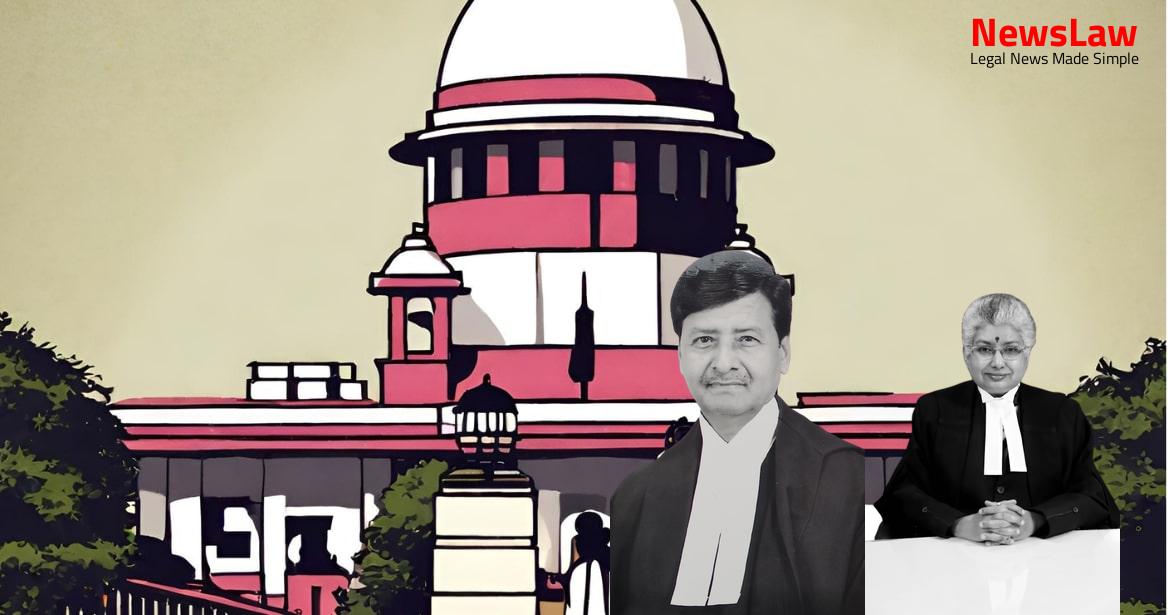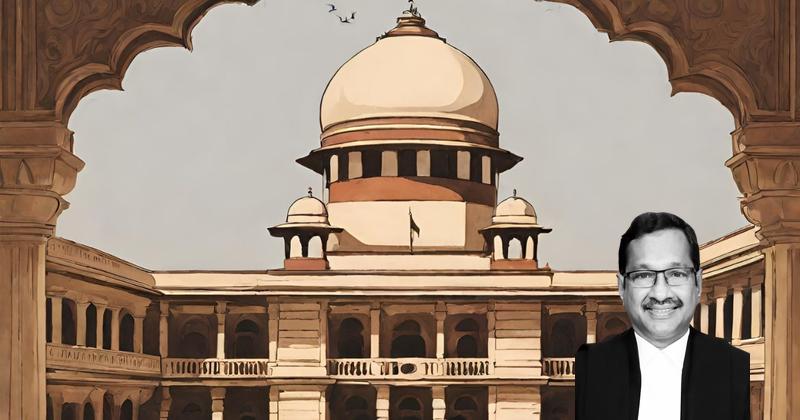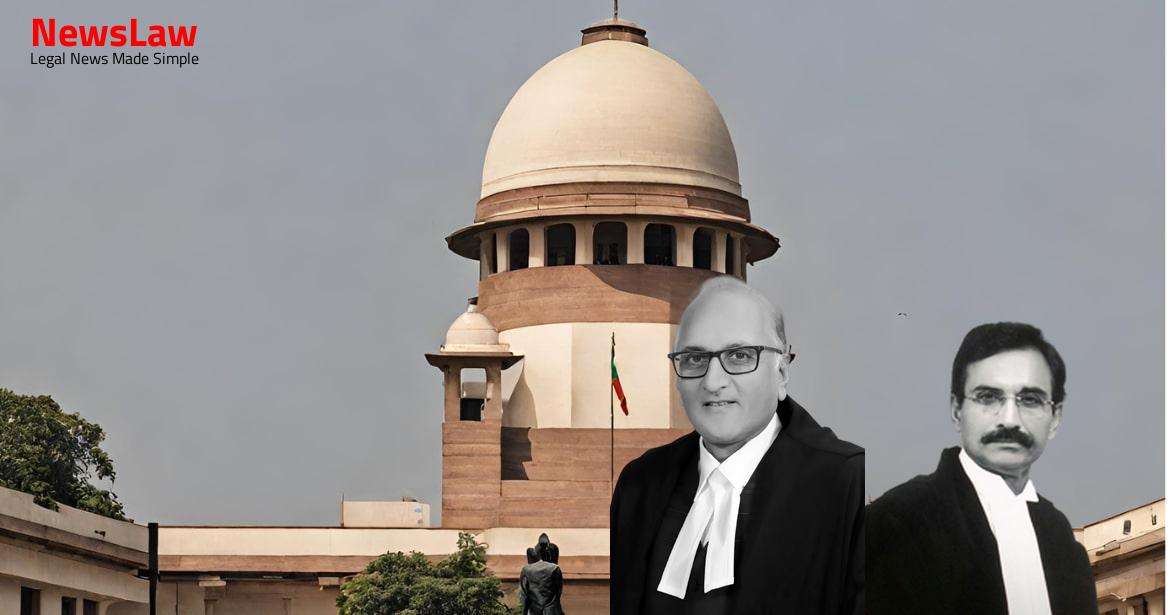Delve into the intricate legal analysis conducted by the court in a recent land dispute case, where the focus was on the crucial aspects of possession and compensation. The court’s thorough examination of the procedural steps taken and the factual findings provides valuable insights into the complexities involved in resolving such disputes. Let’s unravel the legal intricacies of this case.
Facts
- The Order dated 29 February, 1988, made payment of compensation after ascertaining the price under Section 11 of the Act 1976.
- Appeal No. Rajkot-18/88 by the present appellants was dismissed by the Land Tribunal on 30 May, 1988, and the finding of fact was affirmed regarding the procedure followed by the State Government and the compensation paid by the competent authority.
- No further proceedings were initiated against the Land Tribunal’s order dated 30 May, 1988, and it attained finality.
- Other alleged co-parceners filed Appeal No. Rajkot-3/1992 before the Urban Land Tribunal in Ahmedabad, which was not maintainable, but the matter was remitted back to the prescribed authority in an Order dated 21 September, 1992.
- The proceedings in Appeal No. Rajkot-3/1992 were closed as the Act was later repealed, with no clarity on the subsequent steps taken by the prescribed authority.
- The Land Tribunal’s finding in the earlier order dated 30 May, 1988, regarding the land vested with the State Government was not challenged.
- Appellants approached the High Court with a writ petition, challenging the mutation in favor of the Government after the remand order in Appeal No. Rajkot-3/1992. The petition was dismissed by the learned Single Judge and further by the Division Bench.
- The appeal against the High Court’s decision on 24 March, 2015, was primarily about the legality of the possession of the subject land by the Government and the disentitlement of appellants to seek redress.
- The background of the appellants’ possession of agricultural land, their filing under the Act 1976, and the subsequent finding of surplus land by the prescribed authority on 6 May, 1987, leading to the Government’s possession on 24 November, 1987.
Also Read: Admission Deadline Adherence in Medical Courses
Arguments
- Learned counsel for the appellants failed to justify a factual statement recorded by the court.
- The court found sufficient material supporting the recorded statement on record.
- The respondents argued that the finding returned by the Land Tribunal regarding the possession of the subject land was based on the procedure prescribed under the Act, 1976.
- The respondents pointed out that this procedural aspect was not challenged at any later stage.
- The unchallenged factual statement regarding possession was considered sufficient grounds for the High Court’s judgment.
- The respondents agreed that the appellants are in practical possession of the land and suggested verification through official records or by conducting an inquiry.
Also Read: From Nominee to Disqualified: Supreme Court Scrutinizes Age Evidence, Declares Election Invalid
Analysis
- The appellants failed to provide any documentary evidence to refute the findings of the Tribunal regarding possession and compensation of the subject land.
- The claim that notice was not served to co-parceners was found to be factually incorrect as their documents were on record.
- No comment was made on the appeal by co-parceners to the Urban Land Tribunal as they did not challenge earlier proceedings.
- The findings of the Land Tribunal regarding possession and compensation, which were not contested by the appellants, have gained finality.
- The writ petition filed by the appellants at the High Court was only for restitution of deemed possession and did not disturb the Tribunal’s findings.
- The legal effect of State authorities following the prescribed procedure for possession and compensation is deemed valid unless overturned.
- The Tribunal found that possession was taken over by the Government in 1987 after following legal procedures.
- The appellants’ claim of being in possession is not substantiated as per the Tribunal’s findings.
- The compensation for the land was determined and paid by the competent authority in 1988 after vesting with the Government.
- Despite being poor agriculturists, sympathy cannot influence legal decisions based on pleadings and law.
- The High Court decision to dismiss the writ petition and letters patent appeal is justified based on the factual and legal position.
Decision
- The appeal has failed and is dismissed.
- No costs are awarded.
- Pending applications, if any, are disposed of.
Case Title: GOPALBHAI PANCHABHAI ZALAVADIA (DEAD) THROUGH LRS Vs. THE STATE OF GUJARAT (2022 INSC 911)
Case Number: C.A. No.-006188-006188 / 2022



